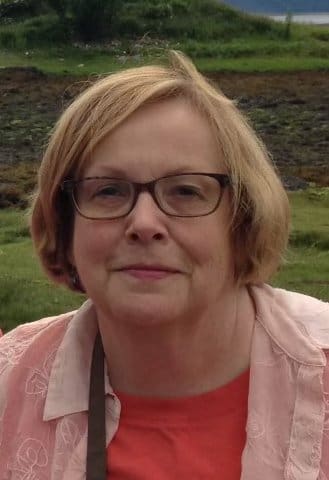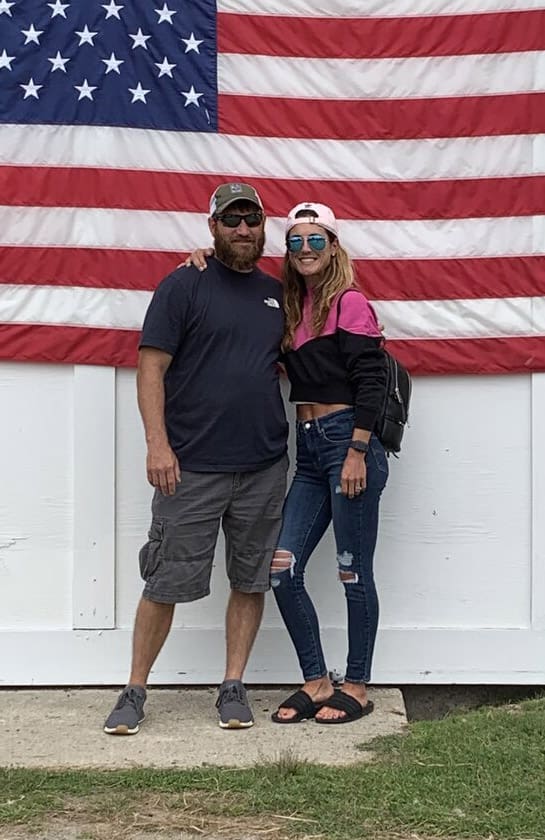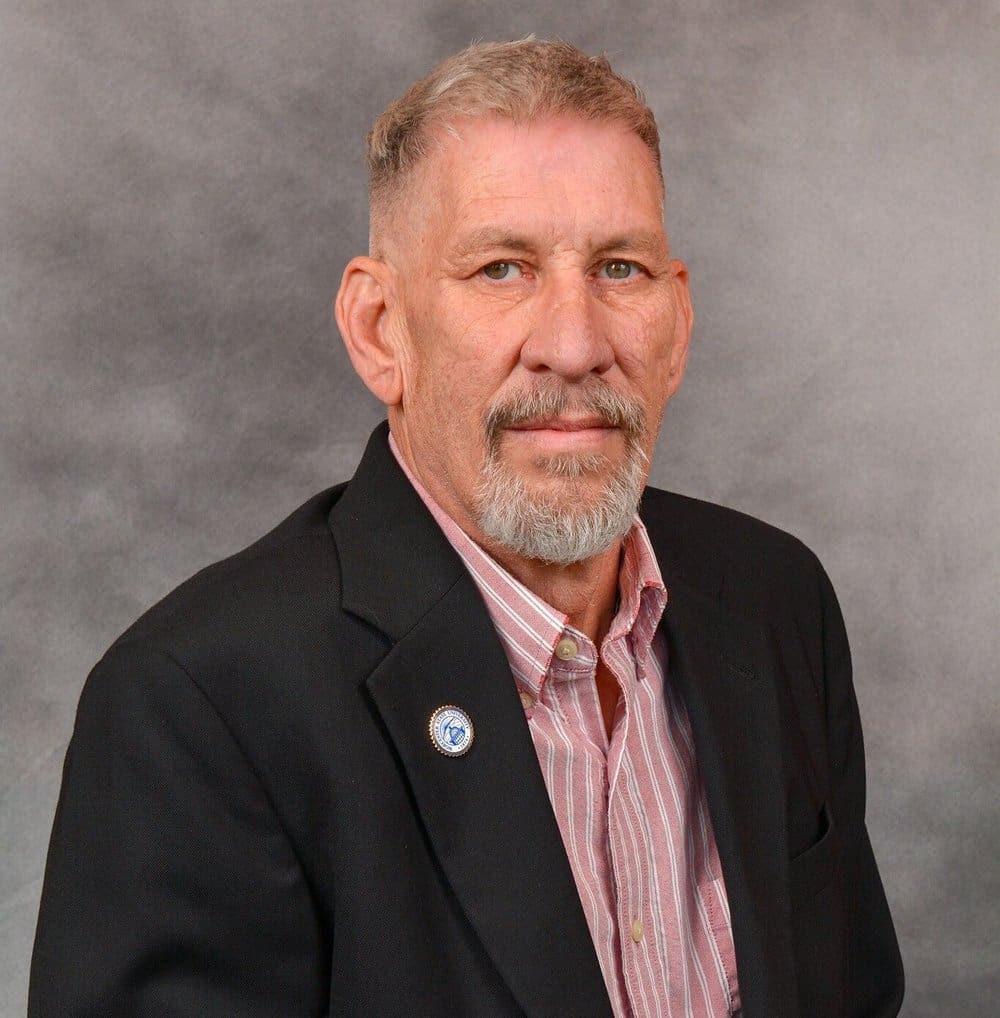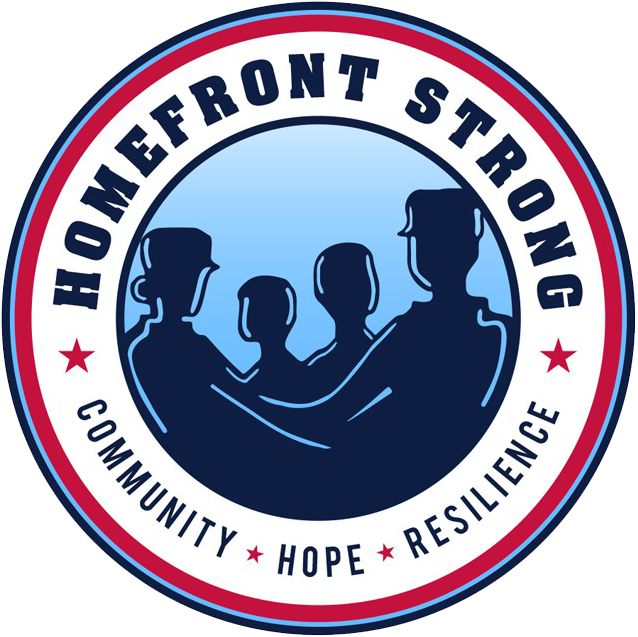
Pat Read

ALLISON LAMBERT
Allison Lambert married her high school sweetheart a short time before he joined the military. “We only spent a little time together before he left.” Her experiences in those early years of her marriage helped build resilience that she now feels capable of sharing.
“The reason I’m at HomeFront Strong is because I’m at the best place in my life to help others. I feel capable and prepared.”
Allison trained in the first cohort of HomeFront Strong volunteers and was matched with a peer who was struggling with fear for her sons, both of whom serve, with one about to deploy.
“Both situations are stressful,” Allison said. She used her past experiences with her then-new husband to help her peer talk through fear, uncertainty and other emotions. “I touched upon how important it is to stay in the moment. Don’t focus on what may or may not happen in the future.”
Fear is a different kind of emotion, Allison said. “Normally you want to share your emotions but fear is a unique example where you can’t.” She listens and empathizes with her peer and lets her get her fears out, so they don’t weigh heavily on her sons. “Your fear may affect their success,” Allison said. Her peer “was making a smart choice, saying ‘I’m struggling and I need help.’”
That’s one of the big things Allison likes about HomeFront Strong — it gives someone a place to talk and be heard.
“I was 18 when I got married and all my friends and family were against it. I had to navigate on my own,” she said.
Allison lives in Dracut, Mass., and is married to Kevin Lambert, who is a primary consultant with the Brookfield Institute. Kevin served in the U.S Army as an Infantryman from 2005-2008 and participated in over 600 combat patrols and missions as a light machine gunner in Iraq from August 2005 through December 2006.
“Kevin does training for the Brookfield Institute so I knew all the wonderful people,” Allison said. “I was looking for a way to volunteer and give back, to offer something to veterans."

Alan "AJ" Jackson
Alan “AJ” Jackson is the perfect person to work with veterans and military families: He’s a veteran who grew up in a military family. His father served in the Army, so the family lived all over. AJ is a retired Master Sergeant, with 24 years of service in the Massachusetts Army National Guard.
AJ has always been an active volunteer and, now that he’s retired, he’s finding more and more that he can help with. He is on the board of the Brookfield Institute, is a trained HomeFront Strong peer mentor, helps with the food distribution and is spearheading an upcoming project to collect veterans’ stories. And that’s just for Brookfield Institute – AJ helps numerous other groups and is very skilled at connecting them with each other.
Part of that skill comes from the years he spent as Director of Veterans Services as Worcester State College. He helped veterans transition to the academic environment using on- and off-campus resources; he holds voluminous amounts of knowledge, contacts and information in his active brain. “It was the best 10 years of my career,” he said about Veterans Services job, which followed years of working in other roles at the college, from student affairs to finance.
When it came time to train as a HomeFront Strong volunteer, much of the information wasn’t new to AJ, but he valued the exchanges and processes he and others in his training cohort went through. The training is spread over four 2.5-hour sessions and includes learning from case studies, talking about “how do we progress from here” and ranking issues from urgent to not-so-urgent. The trained volunteers are then connected with service members, veterans and their families to cultivate strengths and eliminate barriers to resources.
“My biggest things are resources and connections,” AJ said. “You’re not doing it for them. You help them go down the path.”
That philosophy has guided all his work and even his decision-making process. “Don’t be a squirrel in the middle of the road. Either way you learn. We all make mistakes. It’s how you recover from those mistakes that matter.”
It was through his work at Worcester State College that he met Jennifer Baublitz, now the executive director of the Brookfield Institute. She recruited him as a board member and the volunteering quickly followed. AJ was familiar with Brookfield Institute through his efforts to build capacity for serving veterans in the Pioneer Valley.
One of his favorite things to do is hear veteran stories. “It’s that feeling of kinship between all of us,” he said.
He’s working to set up a storytelling booth at the June Veterans Inc. Stand Down in Worcester. He hopes to be able to draw on his past experience in radio and TV to record stories at the event that can then be shared with the Brookfield Institute for its Veterans Storytelling Project, as well as with Veterans Inc. and the Library of Congress.
